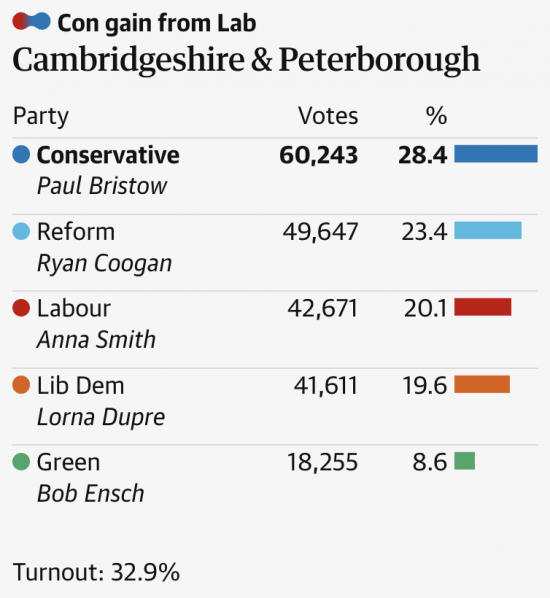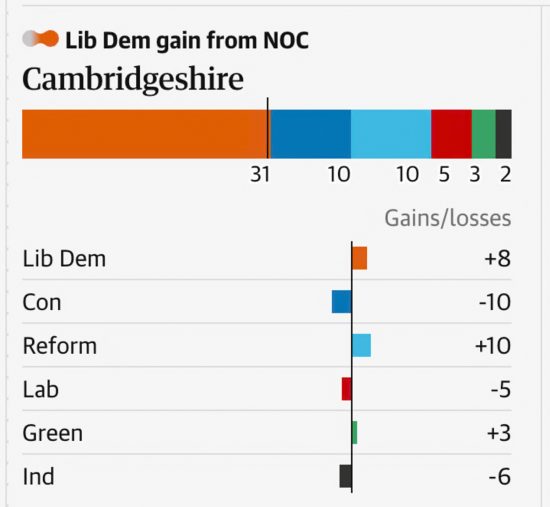I noted this result in the mayoral election where I live, yesterday:

Then, later in the day, came this election result for the council covering the same area:

The party that came a quite distant fourth in the mayoral election took control of the council.
The party that regained the mayor's office lost ten seats on the council.
How to explain this? I can only presume that Tories only voted in the mayoral election and seemed to ignore their second ballot paper. It's that, or the electoral calculus is more complicated than it superficially looks to be, at least in a county as varied as this one is, varying from the deeply rural to university-dominated seats in Cambridge.
Thanks for reading this post.
You can share this post on social media of your choice by clicking these icons:
There are links to this blog's glossary in the above post that explain technical terms used in it. Follow them for more explanations.
You can subscribe to this blog's daily email here.
And if you would like to support this blog you can, here:


 Buy me a coffee!
Buy me a coffee!

Might simply be ward boundaries – the Tories (for example) piling up lots of mayoral votes in some places, but few enough in other places for other parties to win there.
Maybe..
How about cynical tactical voting, Effectively the few that cared enough vote cast protest votes against the sitting candidates they didn’t want in favour of those with the best chance of replacing them. I believe the political system in the UK is so toxic and voters are so disillusioned that it has come to this.
I live in the area and voted Labour for Mayor – representing the best non-Tory/Reform chance for the region. Locally, I voted Lib Dem for the same reason. That might explain things a little.
The Far-Right (Tory/Reform) vote and Centre/centre-left/Green vote were, in aggregate not that dissimilar so this will lead to big swings in results for relatively small swings in votes. We really need PR for councils/parliaments and STV (Single Transferable Vote) or similar for mayoral elections.
Agreed re the aggregate vote.
But it proves how daft a FPTP mayoral election was
I’m in the same area. One explanation that has been suggested is that Bristow is at least local and of course the former Peterborough MP. Had the tories parachuted in another candidate, the outcome might have been very different. Having said that, the structure of local government is completely bonkers, with 3 layers covering the same constituencies.
He lives in St Albans
Hardly local
Interesting, my recollection is that he claimed that he lived in a village near Peterborough, but perhaps he was saying that he was brought up there. If I’m wrong (or he lied), I stand corrected.
The suggestion that he really lives in St Albans was widely reported before the election.
The two electorates cover different areas which makes it difficult to compare the Mayoral and County council results. Peterborough is a unitary authority and not part of Cambridgeshire County Council so the County Council results exclude Peterborough while the Mayoral elections include Peterborough. But I think there are some quite sophisticated tactical voting patterns going on which will be important in the fateful 2029 G.E.